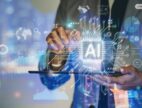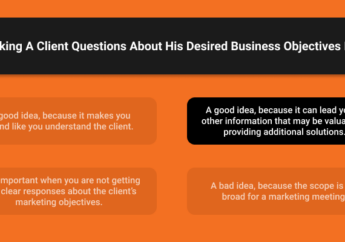Should You Automate Cognitive Work at Business Using AI? Cognitive AI Across Businesses – A Study
by Shahnawaz Alam Business 12 February 2024

The world is way past the time when we used to think about what AI could do. Now, the focus has shifted to what it cannot, which turns our heads toward the cognitive work employees are supposed to do in a business. So, can we do cognitive work at business using AI?
But now, there is cognitive AI, which can do much more than one person can. Does that mean we just replaced human beings from the global workforce? No, not entirely.
When heavy lifting is left to AI and machine learning, current world human resources are left with the last ace up their sleeves – cognitive skills. They will take up administrative and directive tasks backed by AI’s data-driven solutions.
When heavy lifting is left to AI and machine learning, current world human resources are left with the last ace up their sleeves – cognitive skills. They will take up administrative and directive tasks backed by AI’s data-driven solutions.
AI will do the heavy lifting in terms of the repetitive tasks that are more time-consuming. Yet, cognitive AI will change the business landscape. How? Keep reading to know how.
What is Cognitive Work?

Cognition is a mental action that allows humans to understand and learn through thoughts, experiences, and senses. The tasks we do through cognition include attention skills, memory, logicism and reasoning, and auditory and visual processing.
When an individual can use cognitive skills to their fullest potential, it positively impacts the workplace. To simplify, the art of cognition is what helps humans accomplish their tasks. They become efficient at using different tools, technologies, and information, contributing to the goal a business or a workplace is trying to accomplish.
Cognition allows humans to understand how to resolve problems and stop repetitive problems from occurring. Many workplaces have assessments for the cognitive skills of their employees. These skills help them multitask, and individuals with good cognitive skills have better long-term and short-term memories.
But how far will the AI be able to help with work that needs cognitive skills? Can you do cognitive work at business using AI? Let’s find out.
Cognitive Works We do at Workplaces
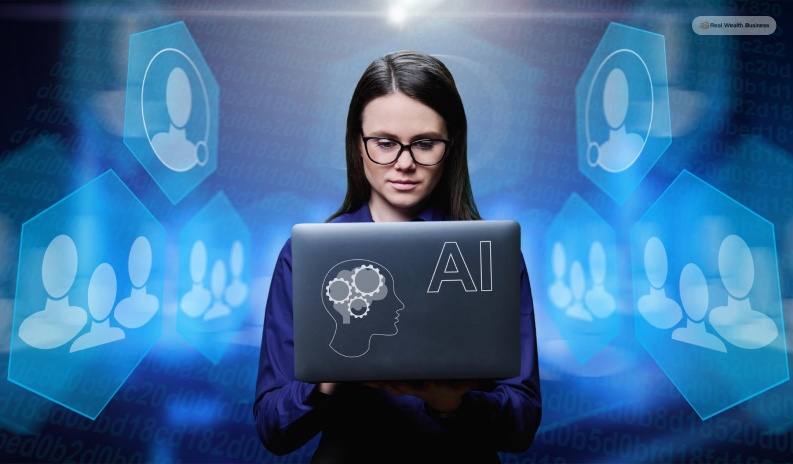
Cognitive work will be part of your day-to-day jobs, whether you are a working professional or someone running a business. A working professional usually has a list of cognitive capabilities. Here are some of the skills we already use at work —
- Attention
- Communication
- Problem-solving
- Decision making
- Logic and reasoning
- Language
- Planning
- Abstract thinking
- Brainstorming
- Collaboration
- Creative thinking
- Critical thinking
- Quantitative skills
- Reading comprehension
- Understanding instructions
- Understanding biases
- Structured problem-solving.
- Visual processing
Of course, these are things that require real human intelligence. But, if we look at the current world of technology, AI has evolved to a point where it can do most of what we do. Compared to traditional AI, cognitive AI is more advanced and can draw out insights from any complex set of data. However, it cannot replicate the emotional understanding and emotional state of humans.
What are Cognitive Automation And Artificial Intelligence?

Before we say what AI and cognitive automation are, let’s first understand where it comes from. The term AI, which we use nowadays, came in three waves. The first one started around 40 to 50 years ago. An individual named Herb Simon was using it to show how machines can help solve problems. The use cases and automatic implementation came back around the 1970s and 1980s.
In its third wave, artificial intelligence brings new things like deep learning and neural networks. Machines can start with pattern matching like humans would. But they can do it in large volumes. The idea of augmenting what a human can do while learning from the machine has come to a point. Simultaneously, the machine is learning from the human.
But what is cognitive artificial intelligence? Cognitive artificial intelligence is all about AI mimicking human behavior. This process then integrates with the RPA, or Robotic Process Automation, combining the machines’ brains and muscles to accomplish difficult tasks for businesses worldwide. We can sort of say that the future is here with cognitive AI evolving.
It gives the machine the power to think, make decisions, and execute. So, what can it do? Cognitive automation works on advanced and complex tasks like reading, making sense of, and using unstructured data. If integrated with a business, cognitive AI can help boost business productivity. Modern-day professionals can do lots of Cognitive work at business using AI.
It can handle repetitive and time-intensive tasks and help a company loosen up its needs for human resources. In fact, they can use their human resources for more strategic and thoughtful activities that need human intervention.
How does Cognitive Automation Work?
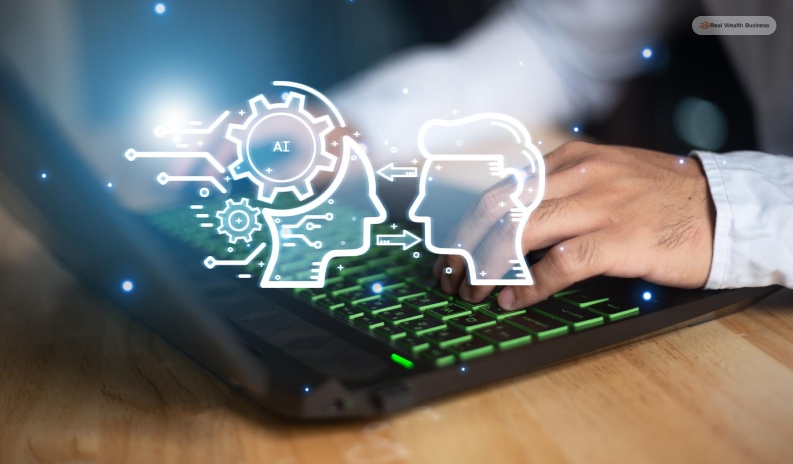
Cognitive Automation is all about integrating artificial intelligence with robotics and automation and deploying them as digital workers. It streamlines difficult tasks and improves workflow in different organizations and teams. It includes different things, such as machine learning and NLP, to make sense of data in diverse formats.
Like the human brain’s neural network, which creates pathways while taking in information, cognitive automation makes connections in patterns and uses the information to make decisions.
What is The Impact of Cognitive Computing on Business?

Decision-making capabilities and the potential to solve some complex problems using AI are today’s reality. Thanks to cognitive computing, lots of problems and decision-making that require human intelligence can be automated.
Large organizations with huge chunks of data often struggle to organize those data and operate the system inside their corporate pyramid. Cognitive AI can provide workable solutions to these individuals. Businesses can optimize how a specific decision is made. The decision-making is not only better but also faster with cognitive AI. It gives industries like supply chain management a boost. Companies can make faster decisions.
However, humans still need to be there since some corner cases may lack enough data or cognitive automation. Hence, decision-making and operations may still need human intervention.
Such an automation process will have large businesses with a complex pyramid structure of networks adopting smaller group structures. These groups will be strongly tied with the ability to measure a decision’s effect on different metrics in real-time.
Cognitive automation in the corporate will bring about the deconstruction of large-sized companies and how people work. It will have an overall effect on the environment, too.
Cognitive Work at Business Using AI: Automate These 5 Works
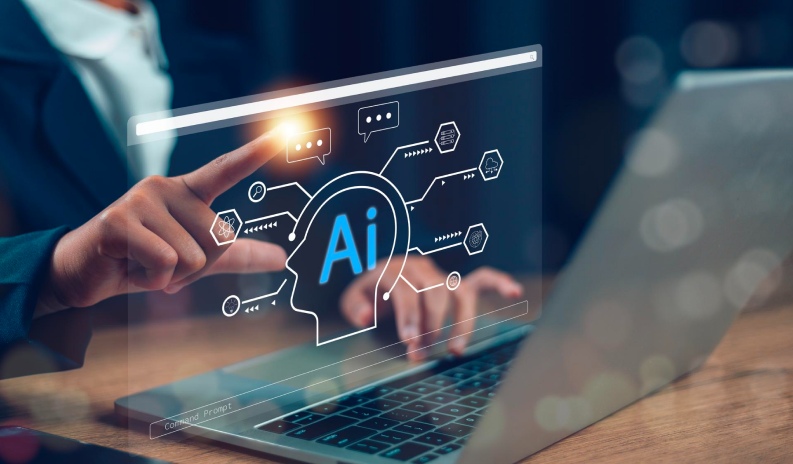
Although many industries are operating using tools powered by perceptual intelligence, the true and unlocked potential of AI lies in cognitive AI. It can improve the efficiency, precision, and user-friendliness of any product and service in different industries. However, despite the constant evolution of cognitive AI, many businesses are far from adopting it in their regular operations.
Also, those who have already adopted it need to come up with ways of maximizing their productivity using cognitive AI. Companies must start building domain-specific databases relevant to it. So, if a business is planning to use cognitive AI, here are five different works they can automate —
1. Automated Data Analysis To Generate Business Insights
Nowadays, everyone has a smartphone, and every business relies on some form of data. It is no surprise that a huge amount of data is being created every year. According to statistics, a massive amount (175 zettabytes to 180 zettabytes of data will be created by 2025).
So, it is no wonder that businesses must analyze and process a vast amount of data every year to make significant, meaningful decisions. Of course, it is a big challenge to utilize this data effectively, and that’s where cognitive AI comes in. There is a large scope for doing cognitive work at business using AI – especially when the work is related to data analysis.
Without a doubt, cognitive AI excels in data-driven analysis. Moreover, it can analyze immense amounts of data and draw out necessary and insightful information for data-driven decision-making. Businesses can leverage machine learning algorithms and cognitive AI to point out different trends and patterns while staying compliant with the low operational cost of the business.
However, for businesses to automate data analysis, they must first build domain and niche-specific databases tailored to specific industries. There should be both structured and unstructured data that the cognitive AI can access. This will help the AI learn and help make domain-specific decisions.
2. Enhance Cybersecurity & Prevent Fraud
Yes, data is the new power in today’s world. The digital landscape is constantly changing and shifting to a new phase every day, making it a priority for businesses to keep their data private. Because of this, data privacy and protection laws such as GDPR, CCPA, and PIPL are being passed around the world. They are also constantly adjusted to stay compliant with current changes.
This causes companies to face different types of changes as far as data privacy and security are concerned. They must constantly change their systems and processes to stay compliant with the latest regulations. Additionally, building a formidable and strong privacy system and keeping it constantly updated is difficult. This is where cognitive AI helps a business build powerful defense mechanisms.
It can easily analyze a huge amount of data in real-time. It can detect potential malicious behaviors in real-time. Cognitive AI can detect potential data breaches in the business system. It can also help businesses adapt to the changing scenarios of data privacy.
As more and more news of cyberattacks keeps threatening businesses, the protective capabilities of cognitive AI will eventually be very necessary to any business. It will help businesses protect both corporate and consumer data.
3. Automating Employee Onboarding, Training & Management
Some of the biggest tasks of any company’s HR department are hiring, employee onboarding, training, and management. These are time-bound tasks that require a lot of cognitive work. However, thanks to cognitive AI, businesses can automate lots of these works and provide the HR team with more time to build and implement other strategies.
Now, what does cognitive AI help with? It helps identify the best talents and helps HRs match candidates according to the job roles and requirements. It improves the overall efficiency and effectiveness of the onboarding process and best talent acquisition.
Even employee management becomes a lot better thanks to this. Moreover, cognitive AI can help businesses create personalized employee experiences, which increases overall company productivity and contributes to the work culture.
4. Enhanced Customer Engagement
Despite the industry a business is operating under, customer engagement remains a crucial part of any business. A business can use cognitive AI to improve the customer experience on their platform.
Many businesses nowadays are integrating AI chatbots and virtual assistants to increase customer satisfaction and boost engagement. They start by quickly and accurately analyzing the customer queries, understanding the context, and providing personalized responses.
Customers do not like to wait around for the business to attend to their needs. Most businesses nowadays provide 24/7 customer service. Cognitive AI can help amp up these services and stay in touch with the customer all the time. It will reduce the wait time for customers and, additionally, will better B-2-C communications.
What will businesses get from this? For starters, customer satisfaction increases because of continuous support and solutions from the business. Businesses get better customer engagement with reduced operational costs for customer support. Gartner states that conversational AI can reduce the costs of contact centers around the globe by $80 billion (about $250 per person in the US) in 2026.
Furthermore, cognitive AI is currently being used for the improvement of service sectors like finance services. Things like algorithmic trading, asset management, and blockchain-based finance come under it.
Global IT companies have spent more than $570 on cognitive AI, which is a 700 percent upgrade from the year before. So, if you are thinking of boosting customer engagement at your business, this is the best thing you can do.
5. Supply Chain Management Optimization
Supply chain management is a very complex business process involving different parties both internally and externally connected. Cognitive AI can help companies manage complex data and analyze them to make proper management decisions.
Companies can manage their inventories and reduce operational costs by predicting demand and improving supply chain visibility. What’s more, businesses can quickly adapt to difficult and changing situations and tackle the changes in supply and demand.
The global supply chain has been through different types of problems repeatedly. But, thanks to cognitive AI, the management will be a lot more agile and smoother.
Final Words
Cognition is one of the skills that humans possess. With cognitive AI, it is now possible to replicate some of those skills and use them in business and various other institutions. While cognitive AI can boost productivity, it cannot replace the need for human resources. There are so many tasks that require human emotions. So, you can do cognitive work at business using AI but not entirely replace humans.
Even though content creation, image generation, and some repetitive tasks are now automated thanks to generative AI, there should still be real-time human thoughts going behind each piece of content or decision made for a business. However, we should utilize technology as much as we can to reach our objective.
For More Interesting Articles Click Below!!






























































































